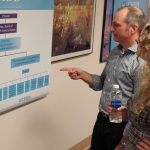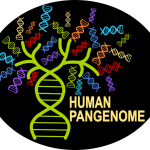Home / Stories /
Who are these children?

- Children with disabilities have any condition of the body or mind that makes it more difficult to do certain activities and interact with their environment. Disabilities are characterized by impairments, activity limitations, and participation restrictions.
- Children with medical complexity have multiple significant chronic health problems that affect multiple organ systems and result in functional limitations, high health care needs or utilization, and often the need for or use of medical technology.
- Children with special health care needs have, or are at increased risk for, a chronic physical, developmental, behavioral or emotional condition and who also require health and related services of a type or amount beyond that required by children generally.
Why does this matter to pediatric trainees and early career physicians?
- 15% of children have a developmental disability.
- Approximately 1% of children have medical complexity, but account for 30% of all health care spending for children.
- Close to 20% of children have a special health care need.
Career Pathways
| General Pediatrics General Pediatrics Certifying Examination Requirements, American Board of Pediatrics |
|
| Developmental and Behavioral Pediatrics Developmental-Behavioral Pediatrics Certification Requirements, American Board of Pediatrics |
|
| Neurodevelopmental Disabilities Neurodevelopmental Disabilities Certification Requirements, American Board of Psychiatry and Neurology |
|
| Physical Medicine and Rehabilitation/Pediatric Rehabilitation Medicine Pediatric Rehabilitation Medicine Certification Requirements, American Board of Physical Medicine & Rehabilitation |
|
Note: This table is designed to highlight a few common career pathways of interest to pediatric trainees and early career physicians. This table is not inclusive of all potentially career pathways and subspecialties that provide care for these populations. For more information on these and additional career pathways, contact the COCWD to connect with experts in the field. Email Alex Kuznetsov, akuznetsov@aap.org, COCWD staff manager, to connect with COCWD leadership. |
|
| General Pediatrics General Pediatrics Certifying Examination Requirements, American Board of Pediatrics
|
| Developmental and Behavioral Pediatrics Developmental-Behavioral Pediatrics Certification Requirements, American Board of Pediatrics
|
| Neurodevelopmental Disabilities Neurodevelopmental Disabilities Certification Requirements, American Board of Psychiatry and Neurology
|
| Physical Medicine and Rehabilitation/Pediatric Rehabilitation Medicine Pediatric Rehabilitation Medicine Certification Requirements, American Board of Physical Medicine & Rehabilitation
|
Note: This table is designed to highlight a few common career pathways of interest to pediatric trainees and early career physicians. This table is not inclusive of all potentially career pathways and subspecialties that provide care for these populations.For more information on these and additional career pathways, contact the COCWD to connect with experts in the field. Email Alex Kuznetsov, akuznetsov@aap.org, COCWD staff manager, to connect with COCWD leadership. |


